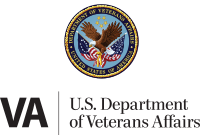
Photo from wikipedia
with its necessary social distancing, our Veterans carry burdens accumulated during prior military service, including the enduring emotional weight of combat and other service-related traumas, along with physical health sequelae… Click to show full abstract
with its necessary social distancing, our Veterans carry burdens accumulated during prior military service, including the enduring emotional weight of combat and other service-related traumas, along with physical health sequelae and chronic medical conditions that may put them at heightened risk for complications of COVID-19. Their military service has rendered them simultaneously vulnerable and strong; resilient in this time of crisis, they have much to teach us. I soon learned thatmy entryway comradewas not alone,many Veteran patients and colleagues were experiencing the pandemic through the lens of past military service. The voice of a typically stoic nursing colleague broke when she shared that stories of COVID-19 patients dying in isolation without family at the bedside brought back her time in a Vietnam field hospital caring for mortally wounded soldiers. During telemedicine visits, I heard more wartime accounts, spontaneously offered. Sharing the credo, “adapt and overcome,” a Veteran told me it was as relevant now as during her tour in impassable Afghan winter mountains as one of the few women in the unit. A Navy Veteran recounted how health system preparations for the COVID-19 surge reminded him of active duty mobilizations when shore leave was abruptly cancelled, and equipment was hurriedly amassed. Like the Veteran who anointed me “sister,” all have expressed gratitude and concern for my wellbeing. Veterans know from lived experience that we cannot carry this alone. Unit cohesion is the bond that unites service members to one another and the mission; it has been prospectively associated with lower risk of adverse mental health outcomes like posttraumatic stress disorder (PTSD), depression, and substance use disorder (SUD). While many have likened our collective experience of COVID-19 to wartime, we must consider what this crisis is like for those who have actually served and how we may best support them during the pandemic. We may also learn from their courage, resilience, and expressions of camaraderie. Natural disasters and pandemics are traumatic and known to result in increased rates of depression, PTSD, and SUD. In addition to the trauma of combat or deployment to humanitarian assistance/disaster relief zones, Veterans often have high rates of preexisting interpersonal trauma including exposure to adverse childhood experiences (ACEs), intimate partner violence (IPV), and military sexual trauma (MST). The majority are over age 65 and many are economically vulnerable. As for the Vietnam Veteran I met at the door, the COVID-19 Received May 17, 2020 Accepted July 9, 2020 Published online July 28, 2020
Journal Title: Journal of General Internal Medicine
Year Published: 2020
Link to full text (if available)
Share on Social Media: Sign Up to like & get
recommendations!